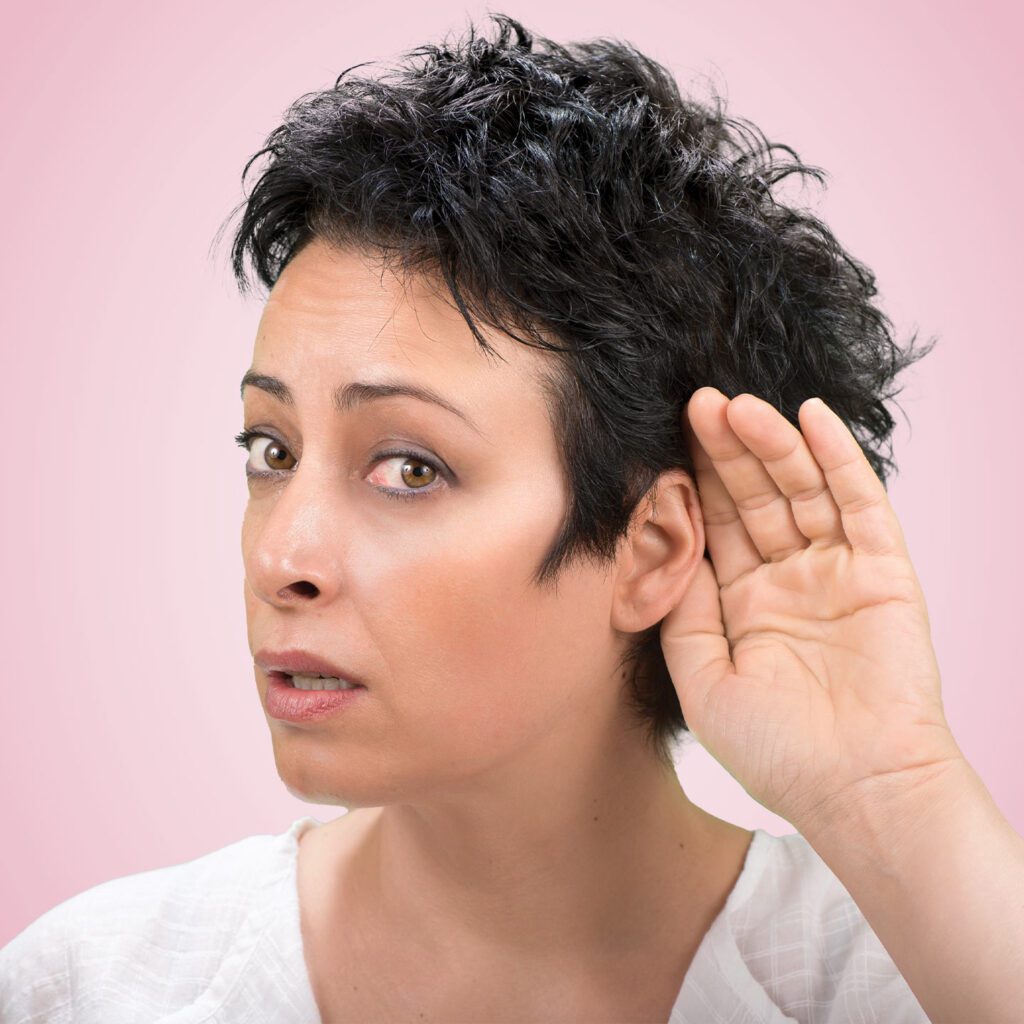Hearing loss is a common health condition for women that is linked to loneliness and depression.
Hearing Loss in Women
Hearing loss doesn’t just affect your ears. Research shows a correlation between hearing loss, overall quality of life, and several chronic health conditions. It’s also a common condition; according to the Hearing Health Foundation, as many as one-third of women in their 50s in the United States have some degree of hearing loss.
The COVID-19 pandemic created an additional stressor for women with hearing loss. Masks and social distancing make communication more difficult, and loneliness from long bouts at home can have an impact on overall well-being.
Side Effects of Hearing Loss


A study performed by the National Institute on Deafness and Other Communication Disorders (NIDCD) found that women with hearing loss are twice as likely to develop depression as those without it. Hearing loss can cause women to disengage from social interactions and activities that require communication. The loneliness that results from this isolation can lead to depression.
Effective Ways to Communicate
If you know a woman who is hearing impaired, there are ways you can make communication with her more effective.
- Get the person’s attention by saying her name. Project your voice and speak clearly.
- Do not talk loudly from another room. Hearing-impaired people may need to see your face to know what is being said.
- Look at the person in good light and on the same level.
- Keep your hands away from your face and avoid eating or chewing while talking.
- Have conversations in less noisy environments.
Hearing Loss Solutions
If you are a woman experiencing hearing loss, a hearing test could help give you tools to re-engage in life. Hearing aids can provide relief and make you feel more confident when socially engaging. Your hearing professional can help determine what type of hearing loss you have and how to improve your quality of life with specialized treatment.


